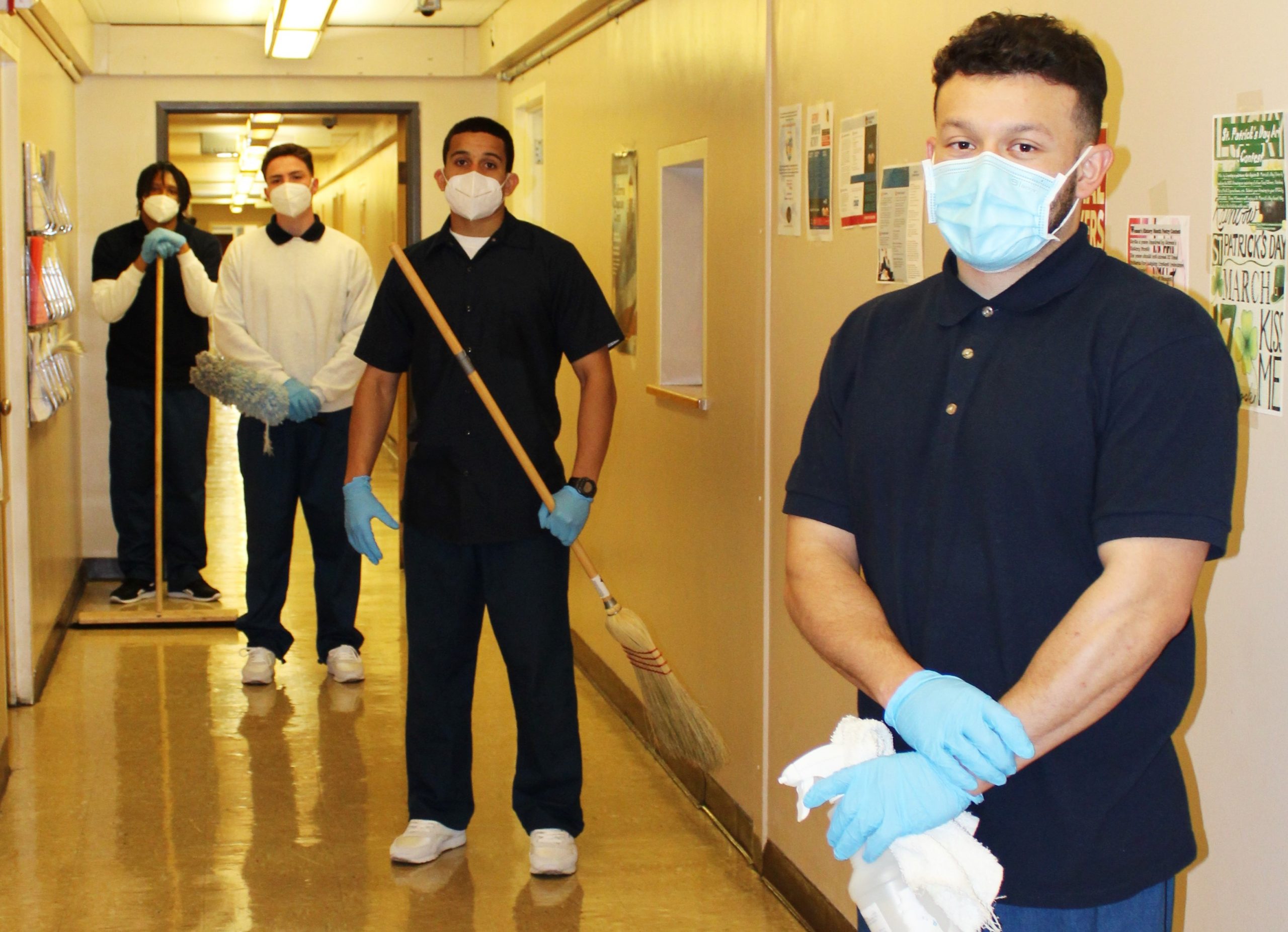Mentor prepares youth for the real world
For youth in the Division of Juvenile Justice (DJJ) system, employability training is critical to successfully transitioning into the workforce. Academic opportunities and cognitive behavioral treatment only make up part of the formula for success. DJJ youth develop workforce readiness skills to help prepare them for the world outside the institution.
At the Ventura Youth Correctional Facility (VYCF) in Camarillo, job training opportunities abound. Jobs range from academic assistants and computer coding to shadowing professional electricians, plumbers, builders, chefs, landscapers, and cleaning crews.
Youth in VYCF’s labor crew are filling coveted paid positions designated for some of the youth population. To qualify, youth must demonstrate a few traits: be trustworthy, show a sense of responsibility, and have a strong work ethic, they can qualify for the program. Their mentor, Youth Correctional Officer (YCO) Rene Coronado, selects, trains and teaches the four DJJ youth. To ensure they stay on track, he works with their treatment teams.
Years of mentorship
YCO Coronado has mentored cleaning crews for three years.
“All of my former mentees are doing well,” he said. The officer is mindful of the importance of diversity in the workforce. He readies his mentees by strategically assembling racially diverse youth work crews with divergent gang affiliations.
He requires them to challenge preconceptions and sometimes narrow notions of diversity, equity and inclusion. As YCO Coronado’s mentees bond, they build character, learning the intrinsic power of teamwork and self-sufficiency. They also learn the importance of integrity, accountability, respect, trust, leadership and dependability. It’s a lesson the youth take to heart.
“Our boss is preparing us for the future, helping us to be responsible young men inside and outside of work,” said youth Aujahn D.
As a result, this force of four is able to avoid racially motivated, gang-related politics and violence. They strive for excellence and embrace a shared goal of gainful employment after incarceration.
“Before this program, I didn’t have the work ethic that I do now. But, working with these amazing guys, I’ve learned to work hard and well with others,” said youth Jabari W. “It gave us a chance to build a bond, a brotherhood. I see these guys as my family and I know together we have the super powers to create greatness.”
DJJ youth workforce readiness is mentor’s goal
“Not only does this help me physically, but also mentally, so I can be prepared in the real world,” said youth Fernando C. “I gained a lot of trust from different staff members so it feels good to know that I am trusted to hold a lot of responsibility to get the job done.”
One of the crew’s responsibilities is to clean the administration building.
Said youth Israel G., “Since the first day I started working, my co-workers and I have been held to a much higher standard and are young men. My boss teaches us valuable life lessons and a good work ethic.”
Preparing for the future
The Fantastic Four, as they’ve been nicknamed, mindfully maintain social distancing, while wearing masks and gloves to help stop the spread of COVID.
At Ventura, the smallest lessons encountered in a day’s work may provide coping skills for later in life. They have shown a positive attitude, appreciative of diversity and the power of collaboration. They also practice valuable skills that will go a long way in helping them seamlessly transfer to the California workforce.
By Karette Fussell, Supervising Case Work Specialist, Ventura Youth Correctional Facility.
Related content
- Read more stories about the Division of Juvenile Justice.
- Visit CDCR’s YouTube channel, Facebook page and Twitter account.
